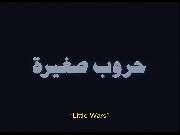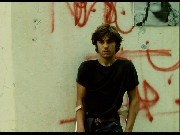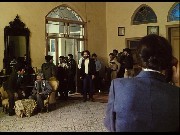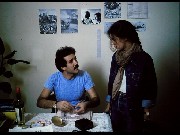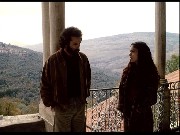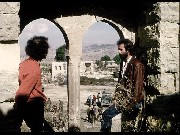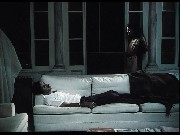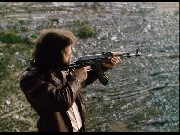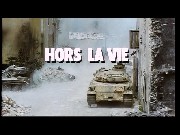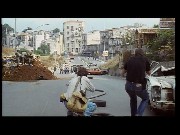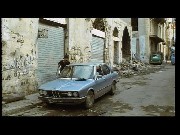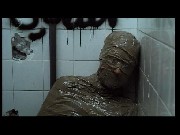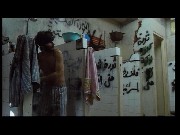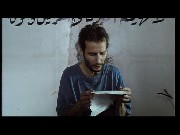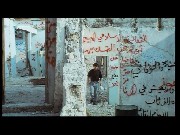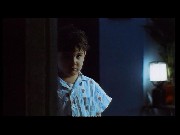Maroun Bagdadi, au printemps du cinema libanais / Maroun Bagdadi – the spring of Lebanese Cinema (Maroun Bagdadi Complete Feature Films Box Set): Beyrouth ya Beyrouth / Beirut Oh Beirut (1975), Liban, le pays du miel et de l’encens / Lebanon, the Land of Honey and Incense (1987), Les petites guerres / Little Wars (1981), Hors la vie / Out of Life (1991), Flashback: Maroun Bagdadi (2013) 5 x DVD5
on September 12th, 2018 at 17:37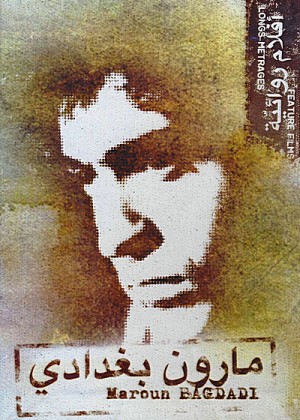
Maroun Bagdadi (1950-1993) ushered in the new wave of Lebanese cinema. His films were the voice of a whole generation torn by civil war and struggling with its identity. They depict the violence and the tragic absurdity of this war while hinting at the hope of reconciliation.
Baghdadi's camera was the closest to record those days, and his life was a mirror of the university generation in the sixties, which was engaged in the adventure of change and knew the tragedies.
The films of Maroun Bagdadi were shot during the Lebanese civil war (1975-1990) and many of them revolved around that war. They portray the fears of people struggling to make sense of the events and coming to terms with their own national identity amidst a fratricide war and sectarianism gone awry. They are as much a part of our collective memory as the events that helped shape them.
Throughout his career, Maroun Bagdadi won numerous awards, notably at Cannes, and made a big impact on Arab cinema. He worked with Coppola and Scorsese, and was himself filmed by Wim Wenders. It is in Wender's film Room 666 that Bagdadi said: “filmmaking overlaps with life...”
Nadi Lekol El Nass has restored some of Bagdadi's films, and transferred them onto DVD, adding French and English subtitles. It has produced 20 minutes of supplements to each film, including interviews with actors, screenwriters and friends. This will enable audiences to (re)discover Bagdadi, a director who, local filmmaker, author and lecturer, Hady Zaccak refers to as “father”.

5 x DVD5 | PAL | 520 minutes | 21.5 Gb + 3% rec
Language: Arabic
Subtitles: English, Francais, Arabic
Genre: Drama, War
"Beirut Oh Beirut" has been done as a graduation film; it’s Maroun Bagdadi's first feature, set against the backdrop of events between the first Israeli raid on Lebanese territories in 1968, and the death of Egyptian president Abdel-Nasser in 1970. The movie was screened on the eve of Lebanon’s civil war and appears to prophesize the looming conflict. It reconstructs the emergence of militant and resistance movements through the lives of individuals from different social and confessional backgrounds. It is both an impossible love story an account of a country on the verge of war.
"Out of Life" tells the gripping story of a French journalist taken hostage in war torn Beirut. As the man’s captivity period stretches, his dignity and moral fiber erode slowly but surely. The film is based on the real-life experience of Roger Auque who was abducted in Beirut on the 13th of January 1987, and then released by the ‘Organization for Revolutionary Justice’ on the 27th of November 1987.
"Out of Life" has an intensity that is only comparable with mythical anti-war films such as Apocalypse Now. From the opening scene, which provides viewers with the vital war statistics (number of dead, internally displaced, in exile, injured, disappeared,) the film's pace and imagery reflect the frenzy, omnipresence and mercilessness of the war.
This film, one of his best known, was jointly awarded the 1991 Jury Prize in Cannes, tying with Lars von Trier's Europa. The film gives a harrowing insight into Beirut's destruction during the 1975 to 1990 Civil War.
"Lebanon, the Land of Honey and Incense" (no Eng subs):
Doctor Fournier arrives in Beirut as the civil war is raging. He finds himself with a colleague working in a hospital controlled by a Shiite militia and treating the injured. Driven by his doctor’s oath, he crosses the demarcation line to treat Christian casualties of the ongoing clashes. This causes Muslims in his neighborhood to brand him a traitor.
He is kidnapped to be exchanged for a fighter captured by Christian militiamen. The film is part of the TV series "Medecins des hommes" (Doctors of men). It was considered the best movie in the series.
"Little Wars":
On the eve of the Lebanese civil war in 1974, three characters’ little stories intertwine to make up the plot of "Little Wars". Talal, son of a feudal lordm, who reluctantly steps into the shoes of a war chief after his father. His love interest Souraya, tries to support him and helps him kidnap a businessman. Finally, Nabil is a photojournalist posing as a hero when all he really does is use the conflict to trade drugs.
"Little Wars" was filmed in Beirut in 1981 and completed shortly before the Israeli invasion – a feature film with documentary value. Much of the film takes place in buildings that are still homes and safe havens. The war seems to affect and disrupt more than it destroys.
Flashback: Maroun Bagdadi:
Ten shorts films:
-- Maroun Bagdadi: Cineaste aux frontieres du real (17 min.)
-- TL/1984 (25 min.)
-- Beyrouth Paris Beyrouth (9 min.)
-- Cannes 1991 (7 min.)
-- Mikhail Naaymeh (15 min.)
-- Hors la vie (3 min.)
-- Bouillon de culture 1991 (10 min.)
-- TV5/1991 (12 min.)
-- Requiem (7 min.)
-- Didier Decoin (12 min.)
upstore
Beyrouth.ya.Beyrouth.1975.L.rar
Flashback.Maroun.Bagdadi.2013.U.rar
